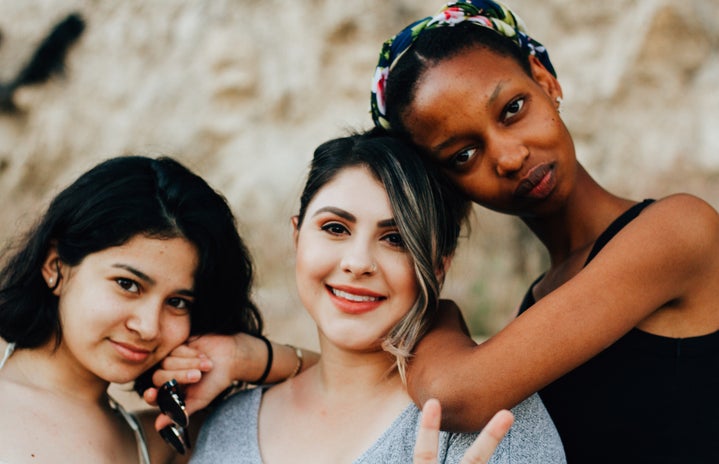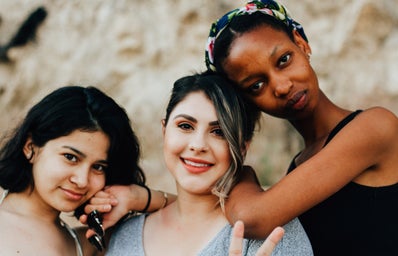Yes, you heard me right. I believe that the age-old term “BFF” should be removed from our vocabularies. In world filled with “tag your bestie” Facebook posts and BFF merch at every retailer, this might seem a bit crazy. Is my proclamation harsh? Perhaps. But unreasonable? I think not.
My entire Facebook newsfeed due to tagaholics:
Before I continue, just a disclaimer: I am not a bitter, friendless person who spends each weekend peering between closed shades at happy BFF-couples frolicking through a meadow of daisies. (Well, at least not most of the time. We all have our days.) I recognize the beauty of having a best companion and I even use the phrase to describe my own friends sometimes. But in my 18 years of existence, I’ve found that calling someone my “BFF” does more harm than good, especially with the recent social media boom.
Picture this, for instance… you and this girl have been super close for years. She’s like your other half; you hanging out constantly, pour your secrets, and tag each other in memes. But gradually, you start to drift apart and your BFF grows close to another girl. You still consider her your bestie, but with this other person around, you’re not sure she still feels the same. And it hurts— who does this girl think she is, getting tagged in all the memes? Your bestie is yours! She laughs more around you. Those are your memes. Well, guess it’s time for a blood feud.
Or the less obvious budding friendship scenario: maybe you get along great with this guy and as you start to get closer you realize he’s the best friend you have. On the other hand, you’re merely the lowly rank of “good friend” on his scale! Oh, the sad friend-longing and pining. Not to mention the awkwardness, TBH. The worst is when you call him your best friend and he just doesn’t know what to say.
Now, these issues would still exist in a BFF-less world. But the word, the very specific rank, only makes the problems worse. Having a best friend is like having a significant other without the same binding societally-induced commitment: you two are a platonic couple, but it can end at any time without any warning and you might not even know it. Or maybe one of you has multiple besties. There’s no place for you to say “hey, we didn’t agree to polyamory in this relationship,” no matter how jealous or hurt you may get. All the mishaps of romantic relationships apply to uber close friendships, and though the same rules don’t apply, BFF breakups and misunderstandings can hurt just as much and more.
Not to mention the pressure induced by this whole obsession social media has with besties. What if you come across the myriad “tag your bestie” posts but don’t have a special someone to FaceTime for long hours of the night or check out boys (or girls or both) with? You might get that “damn, it sucks to be single” feeling, only platonically. What about people who don’t have a single bestie, but many equally close BFFs? IMO it’s very annoying to see someone tag ten people on one of those posts or hear someone say they have five “best friends”. Isn’t the whole point of the phrase to identify one single person who is your “best” friend above others? Regardless, some people’s relationships just don’t work that way. You may have no best friends, many best friends, a best friend who doesn’t feel the same, or a friend who considers you their bestie but doesn’t quite fit your definition.
When people tage “a few” best friends:
Now, let’s imagine all this in a world without BFFs. You may be especially close with one friend, equally close with many, or slightly less close to people, but can still say you have friends who care about you. There’s no dramatic shift when someone goes from your Official Greatest Companion to just a “good friend” and no feeling of panic when you realize you can’t identify anyone as your closest bud. A lot of unnecessary pain would be abolished, for preschool aged kids and adults alike, if we stopped considering people our “best” friend and valued each friend for their ability to support us and make our lives a little happier, regardless of their rank on your closeness scale. Though the phrase “best friend” means well, it is exclusionary and causes unnecessary complications. So rather than saying someone is or isn’t your “best” friend, try simply identifying them as a close friend who you can count on. They’re worth more than the label.


